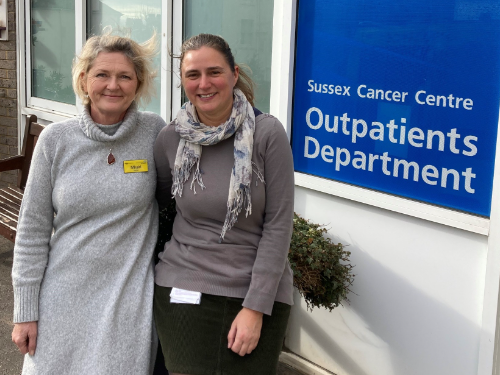
Two colleagues from our oncology team have detailed an approach to managing and supporting patients with nutritional problems because of their cancer or its treatment.
Mhairi Donald, consultant dietitian oncology and Ali Hodge, an advanced clinical practitioner in acute oncology and immunotherapy have highlighted the best ways to provide nutritional support to cancer patients and how colleagues can support them, which is published in a research journal.
When patients are diagnosed with cancer, the treatments that follow can result in a range of adverse symptoms which can affect a person’s ability to consume, digest and absorb food and fluids.
If left unmanaged, symptoms can be debilitating for patients and escalate, such as diminished nutritional intake, leading to malnutrition.
Mhairi said: “Being well nourished can make a big difference to tolerance of cancer treatments, treatment outcomes and overall quality of life. What people can eat, and drink can be so easily affected by the cancer itself and or its treatment. It’s vital for us to recognise if a patient is having difficulty and we support them with some practical personalised solutions as soon as we can, and this article helps all healthcare professionals to do that.”
Together with Anne Holdoway, a consultant dietitian at the Bath Clinic, the trio explored these symptoms and the dietary changes that can be used to alleviate these symptoms.
They also examined the important role that nurses can play in using screening tools and assessments to offer patients nutrition advice to help manage these symptoms and improve their quality of life.
Ali explained: “Nurses play a crucial role in the nutritional wellbeing of patients throughout any point of their healthcare journey which is why it was so important to explore their role in this article and enhance their awareness. They see patients regularly and can assess their nutritional health formally, through screening tools, and informally, by noting if clothing is looser or if they are not eating at mealtimes.
“Nurses can then work with the patient, family, and carers to explore the cause and provide them with access to dietitians for specialist help.”
Early recognition and management or alleviation of these symptoms is vital, therefore a joined-up approach between nurses and dietitians is so important.
Mhairi said: “All of us in our assessments and conversations with patients can be asking about their basic human requirements such as, how are you manging with eating? The more of us who are doing that, the more we are recognising when someone is running into difficulty and needs help.
“Ali sees and supports patients with acute problems often related to their cancer treatment and many will have symptoms relating to their dietary intake, so we are regularly liaising with each other over mutual patients and how we can jointly help them by taking a holistic approach.”